Women of the Sahel: Portraits of women living through violence and conflict in the Sahel
Armed conflict, violence, climate shocks, displacement and the COVID-19 pandemic have all contributed to the extremely complex humanitarian situation in the Sahel region of Africa. Their impact is felt, first and foremost, by civilians. Common threads running through the narratives of many of the articles in this issue of the Review point to the particular challenges facing women in the Sahel region – owing to their vulnerable position – and the key role they play in their communities. These women have to cope on their own: their fathers, husbands and sons are either in detention or missing. The challenges they face include obtaining food and access to care, education and employment, as well as rebuilding their lives and homes. In their daily struggle for survival, they also remain prime targets for violent attacks. Two humanitarian issues arise here. The first and most obvious, that of protection, should not overshadow the increasingly significant issue of women's inclusion and participation. In fact, there has been a shift away from viewing women as vulnerable potential victims and towards recognizing them as effective – even key – agents of change in the region, thus highlighting the importance of investing in women, the driving force behind efforts to rebuild society.1 The stories of the women from the Sahel region featured below2 reflect their desire to rebuild society and their capacity for resilience.
Fada N'Gourma, Burkina Faso
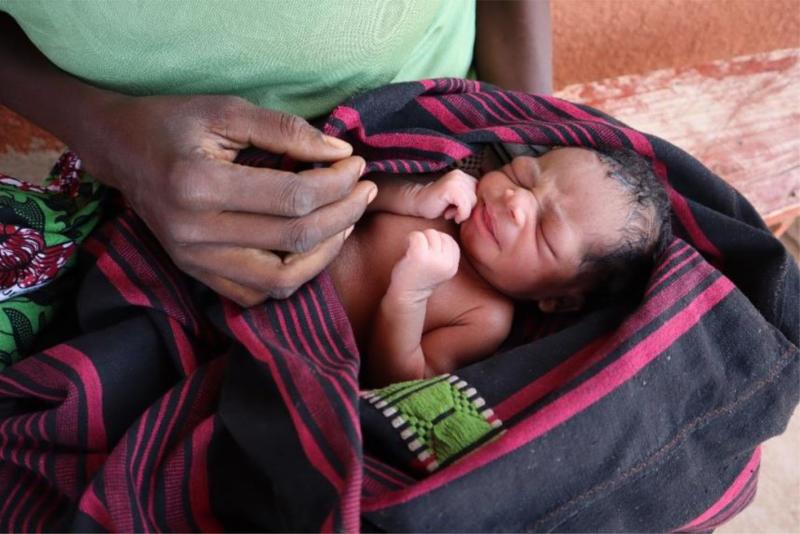
© Halimatou Amadou/ICRC.
Alice arrived with her family in Fada N'Gourma, in the eastern part of Burkina Faso, in December 2020. She gave birth one evening in July 2021. The following morning, she had to give up her bed to another new mother, owing to a lack of space in the maternity unit. The health centre in sector 11 of Fada N'Gourma only has six beds, but handles more than one hundred births per month.
I had to flee from my home village of Boulgou.3 We could not live there in peace any more; we were being hunted. The village is deserted now. I was pregnant when I fled with my husband, his other wife and our children. Our escape was physically challenging: we had to borrow tricycles for part of the journey. Whenever we heard the slightest noise we would get off our bikes and hide, and then continue on foot, as the risk of being caught was very high. We decided to split up and travel on separately, in order to have a better chance of surviving if something terrible happened. If we had stayed together, our whole family could have been wiped out.
Many of the people who fled were never heard from again. They are no longer in the village and have not been seen since. Others were later found dead in or near their vehicles, somewhere in the bush.
When we arrived, we were welcomed by the host community. They donated the clothing that we and our children now wear. At the moment, our main worry is food. Life is very complicated here. There is nothing for the women to do but sit around all day, twiddling our thumbs. It is my husband who goes around the town, taking on all the odd jobs he can find, such as digging septic tanks, so he can put food on the table. If he doesn't find any work, we don't get to eat.
We have found refuge here in Fada, in sector 1; we rent two houses for 5,000 CFA francs each.4 We owe back rent but the landlord does not hassle us. We rely on donations for the clothes on our backs.
I don't know when we will be able to go home. We don't know when this crisis will end. Things are getting worse and worse. I hope to get enough food and enough money to set up a small business to support myself and my family. No one can live forever on the charity of others, or by begging.
I sometimes lie awake at night, thinking about all the people who were killed. All the people I knew who had stayed in our village are now dead. It's terribly sad.
If we ever return home, I am not sure how we will manage to live with the weight of all those memories. I hope that I will be able to raise my children well and that they will never have to see what I have seen.
The future remains uncertain; it's the rainy season but we can't even grow any crops here. What are we going to eat?
Tadress, Tillabéri, Niger
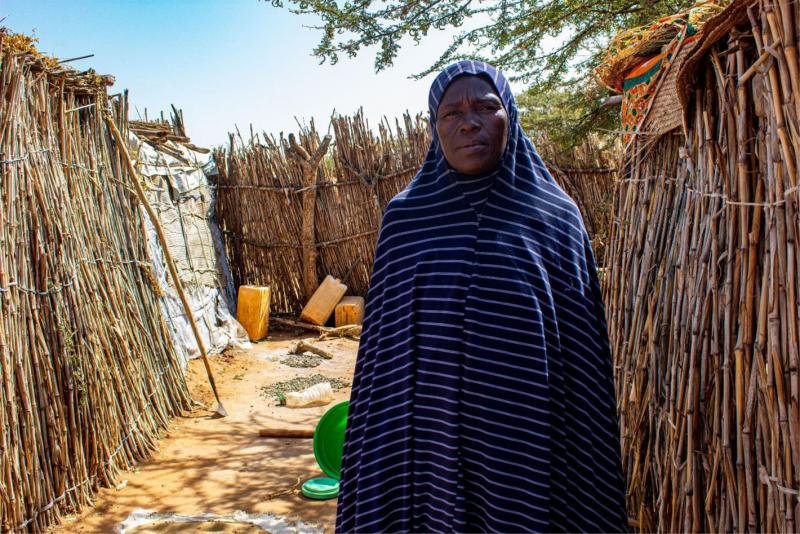
© Abdoul Rahamane Yaou Diaouga/ICRC.
Aissa is a widow, the mother of three children and the head of her family since the death of her husband. She and her children are among the 120 families (around 700 people) who fled Tingara, Niger, in December 2018, following threats from armed groups, to seek refuge in Tadress, on the outskirts of Tillabéri. Four years later, these families are still wholly dependent on humanitarian aid, having lost everything when they fled their homes.
I used to live in a small, peaceful village called Tingara. In recent years, our land had become progressively less fertile owing to scant rainfall, and there was not enough fodder for our animals. After the death of my husband, I became the head of our family and had to take care of our three children.
In Tingara, we made a living from farming and raising livestock. During the dry season, we [the women] would grow fruit and vegetables to sell at market to compensate for the poor harvests we'd experienced in recent years owing to a lack of rainfall. When the harvests were not as good as we had hoped, we compensated by selling lettuce and other seasonal produce in order to make ends meet.
Even before the attack on our village, armed groups would regularly take our animals, especially small livestock. Sometimes they would stop us on our way back from the weekly market and take our goods and money. Many of those who resisted were killed.
One Sunday morning, at around 11 am, the villagers received death threats from an armed group.
“We know all of you. You have twenty-four hours to leave these lands, otherwise we will come back and kill each and every one of you”, the armed men said, pointing their guns at us.
As soon as they had turned their backs, we grabbed whatever we could and fled. There were pregnant women, old people and sick children among us. We left the land of our ancestors for an unknown destination, abandoning everything in order to survive. The men decided that the weaker women and children would ride on carts and that the rest of us would walk.
It took us two weeks to reach Tillabéri on foot. Some of the pregnant women even went into labour and gave birth along the way, before continuing the journey with us. We left the very elderly women, who could walk no further, in the villages along our route.
The community in Tadress welcomed us, marking a turning point in our lives: a new start, with new challenges. We have been here for three years now. Some of us have set up small businesses, and the men have found work in the town. Our new life has its advantages: for example, we can get water from a standpipe only a short walk away. However, we still have to live with a great deal of uncertainty. We are living on scraps of land that do not belong to us, and the locals regularly come to check on their property.
We are struggling to figure out how to live on other people's land without problems. Back in Tingara, we stored our crops and had enough to eat even though the harvests were often poor. Most importantly, the land we farmed belonged to us.
We women also feel useless; while the men manage to find jobs in town to put food on the table, we are unable to do the same. For us, these last three years in Tadress have been a period of enforced idleness.
Once, a humanitarian organization asked us to sweep Tillabéri town centre. We each received 80,000 CFA francs.5 In the three years we've been here, this was the only time we managed to find work and earn money to live on. It's depressing to be in this situation: we can't help our menfolk, we can't grow crops and we're not even sure whether we'll still be here tomorrow, as we could be forced out at any moment.
My fondest memories of life in Tingara revolve around the freedom and autonomy we had, including with respect to our work. I don't necessarily want to go back to my home village, but I would like to live somewhere without conflict, without the threat of danger and of an uncertain tomorrow.
Gao, Mali
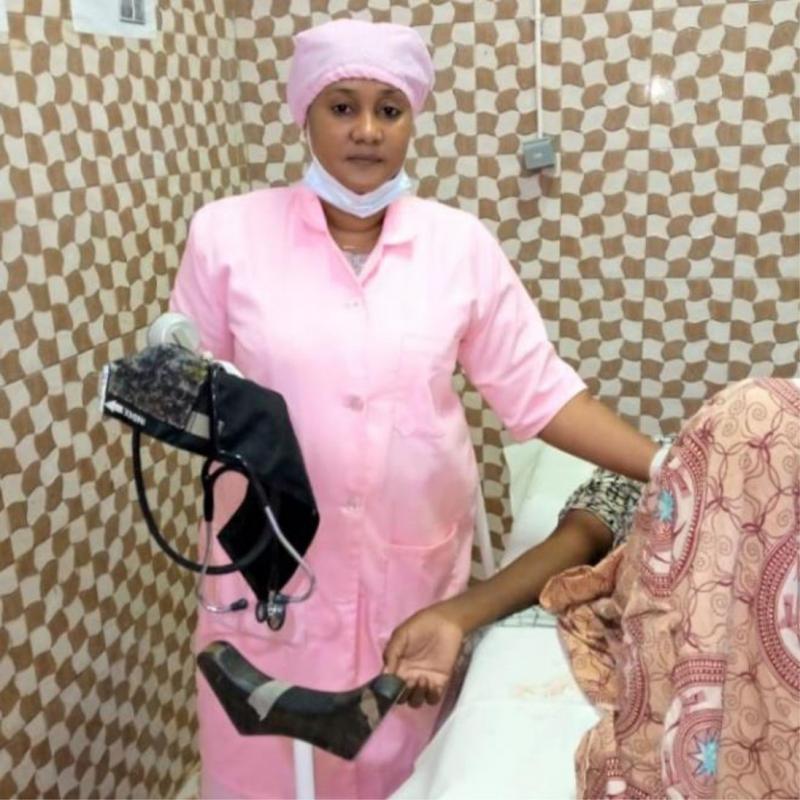
© Mohamed Cissé/ICRC.
Nafissa6 works as a midwife at the regional hospital in Gao, Mali. She is also the focal point for the mental health and psychosocial support programme. She provides support to women who have experienced violence and danger, and who have no access to health care.
On the lack of access to health care:
I remember a pregnant woman who suffered terribly during delivery. Her labour dragged on, and it became obvious that she would have to be evacuated urgently to the hospital in Gao, almost 100 kilometres from the health centre in Doro. The transfer took twelve hours. It was too late to save the baby, who was stillborn. The mother survived, despite the risk of uterine rupture and haemorrhage. However, she had to go through the additional trauma of having to carry the lifeless body of her baby, who could have survived.
This is a familiar experience for many women in Mali. My health worker colleagues and I often witness such tragic events when we intervene in obstetric and neonatal emergencies, mostly caused by delayed transfers to health-care facilities.
Access to health care is difficult. The roads are poor, the distances are long, the means of transport are inadequate – sometimes patients have to be transported on donkeys or horse carts.
On the omnipresent danger in the region:
The lack of security further complicates access to health care. We are not safe from attacks on ambulances on the way to hospital.
Last year, we admitted a pregnant woman from Bourem health centre because she had eclampsia during a full-term pregnancy. Eclampsia is a life-threatening emergency for the mother and her unborn child.
The transfer normally takes about two hours. On the way, armed men attacked the rented vehicle carrying the pregnant woman. While she was having contractions, she was shot in the arm. Fortunately, the vehicle was able to make its way through the gunfire and reach the hospital. The patient was immediately admitted and her condition stabilized by the surgical team. She subsequently gave birth by caesarean section. Both mother and baby survived, which was nothing short of a miracle.
On sexual violence:
Sexual violence is another threat to women in northern Mali. Many women have experienced this kind of violence. Nevertheless, it remains a taboo subject. Above all, it is a weapon used by armed groups, with horrific consequences.
I remember a young patient who was a victim of sexual violence. She had been humiliated and beaten by her stepfather. She was told that she was worthless, that no man would marry her. Rejected by her peers, she ended up dropping out of school. She felt a great deal of guilt.
Fortunately, she was quickly referred to us. We provided medical care to prevent sexually transmitted infections and unwanted pregnancy. With psychosocial support, she managed to overcome her ordeal and even returned to school.
A lot of effort is being put into improving antenatal and obstetric care. However, more still needs to be done and the maternal mortality rate remains deplorably high, particularly in armed conflict zones. Unfortunately, social barriers still restrict access to medical and psychosocial care for many victims of sexual violence.
Mopti, Mali
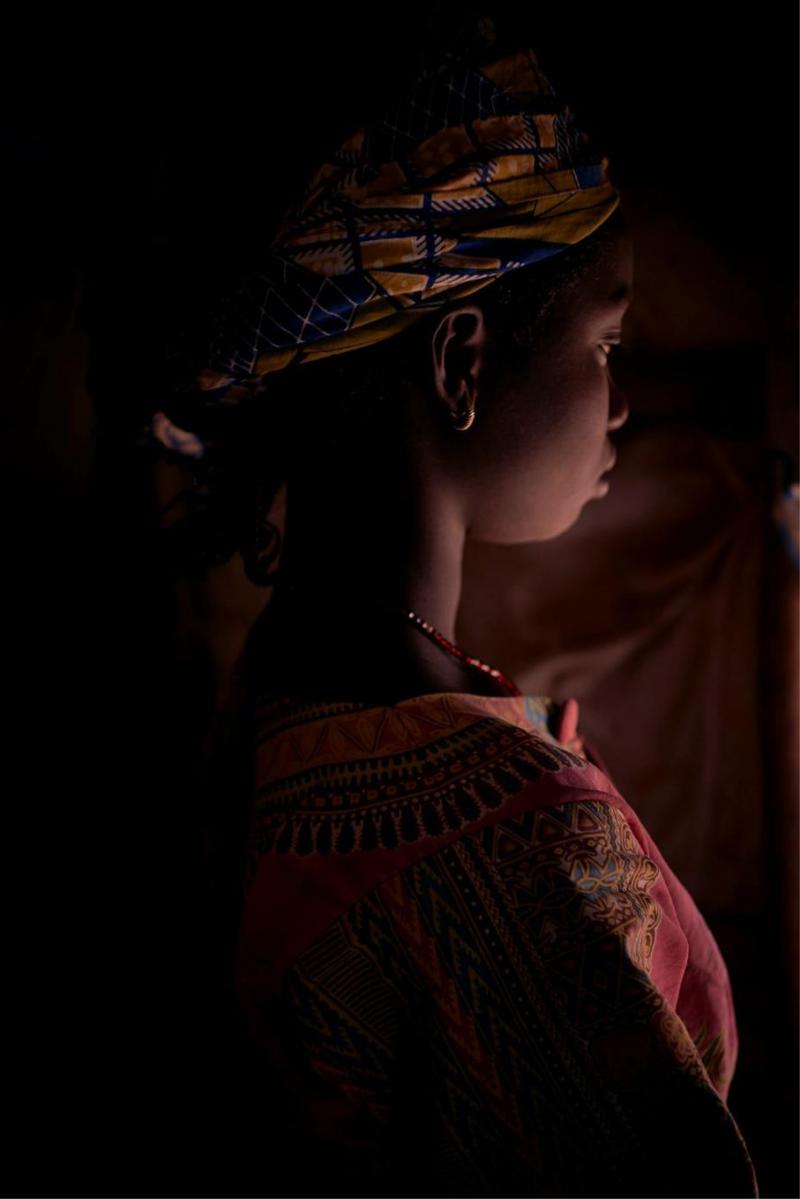
© Michele Cattani/ICRC.
Adja was just 13 years old when armed men burst into her village, opened fire indiscriminately on the inhabitants, and then left.7 Her assailants had left her for dead, but Adja was “lucky” enough to survive.
Adja had to undergo emergency surgery at the hospital in Mopti, Mali. After three months in recovery, she was able to leave the hospital and was taken in by a family in her village who had survived the attack. However, she has been left with a disability and dropped out of school because she could no longer walk long distances to get to class.
Adja is now 15 and cannot draw water from a well, carry a bucket on her head or pound grain. She is stuck in a kind of limbo.
Thiou, Burkina Faso
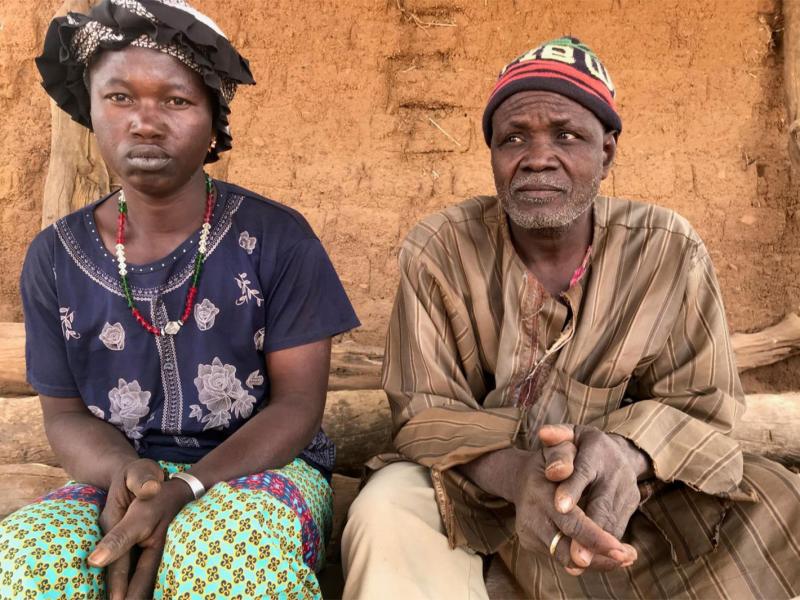
© Halimatou Amadou/ICRC.
In Thiou, a town halfway between Ouahigouya, the capital of the northern region of Burkina Faso, and Koro, the first town across the border in Mali, 100 displaced men, women and children are queuing in the blazing sun to collect a month's supply of food. It is 10 o'clock in the morning. In front of a large warehouse, a few kilograms of rice, sugar and salt and litres of oil are being distributed to each family. In the shade of an acacia tree, women are being taught to spot the signs of child malnutrition. Among them is Maimouna, a small, slim, quiet and self-effacing woman.
Maimouna8 is in her forties. She carries a black plastic bag that serves as a handbag to store her identity documents. Ten months ago, she and her nine children left their village of Kain-Ouoro and walked for 45 kilometres barefoot before they finally found refuge in Thiou.
We had to flee for our lives. Everything had been burnt to the ground. We arrived here with nothing.
In Thiou, there are no open-air camps. Most of the displaced people are hosted by local communities. Maimouna and her family found shelter with Adjarou. a farmer and long-time friend. The two families – twenty people in total – share everything; their lives are now intertwined.
When Adjarou earns some money, he shares it with us. On days when no money comes in, we all have to manage as best we can.
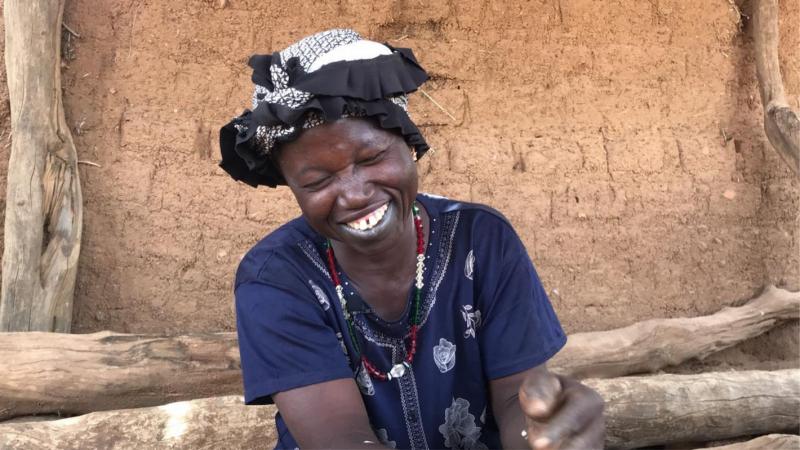
© Halimatou Amadou/ICRC.
Maimouna has taken on a range of menial jobs to help with the household expenses.
I pound millet, I go into the bush to fetch bundles of wood to sell, and sometimes I pick onions in the garden.
Adjarou and several other families have banded together to grow vegetables in his garden, hoping to generate an income. He explains:
I worry about feeding the whole family. I hope that the conflict will end so that they can go home, because there is not enough land for all of us to cultivate.
Niamey, Niger
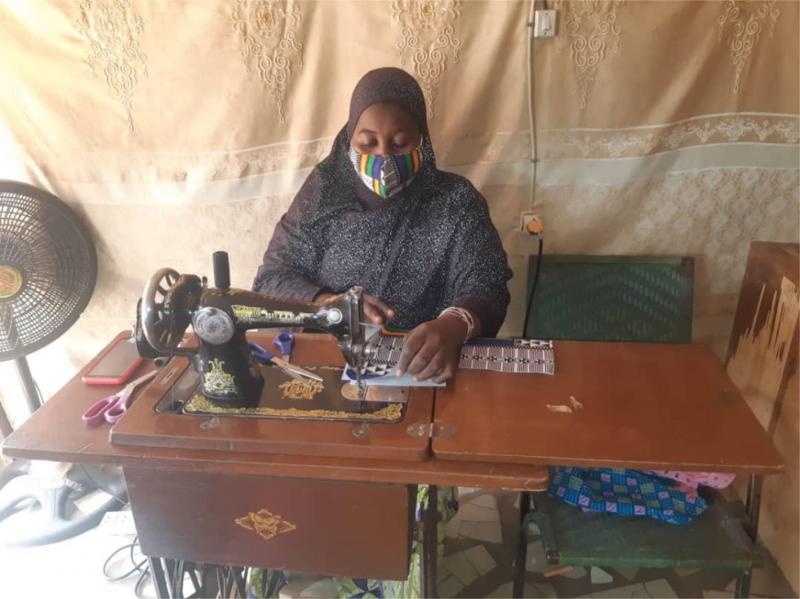
Kadidjatou9 is 44 years old and has four children. She has adapted to living with a disability in spite of the difficult access to health care and precarious security situation in her country and the region.
My name is Kadidjatou Amadou Salifou. I lost the use of my legs after contracting polio when I was 2 years old. It's a miracle I survived. At that time, polio was a little-known disease [in Niger] and was considered a curse.
I spent several months in the National Hospital in Niamey and the hospital in Lomé, Togo, before I was sent home to begin physiotherapy. I had to drag myself around on the floor, but I refused to be confined to our family home. I didn't have many friends to play with. I used to dream of a normal life, of being able to stand up and walk a few steps. I refused to fall apart physically or psychologically. I kept saying to myself: “What do I do now?” I knew that my family had high expectations of me.
To help me, my father used his limited savings to buy me a pair of crutches. Every morning I used to sit in front of the house and spend the whole day watching people, cars and life go by. I refused to be excluded from everyday life.
In our neighbourhood, people weren't aware of what poliomyelitis was. I often felt pity when they talked about me or my disability. School had also become a living hell; I couldn't put up with the taunts of my classmates any more – I wanted to quit. When I was 15, I dropped out of school.
I enrolled on a training course for people with disabilities. I chose to learn how to sew. I was pleased to finally find myself in an environment where I did not inspire pity.
After I completed my dressmaking diploma, I was given a sewing machine. It took me a while to hone my skills, but I got there in the end. I then took a leap of faith and opened my own workshop. It was an amazing experience: I made women's and children's clothing, and also trained other disabled people free of charge.
Today, in addition to being a skilled seamstress, Kadidjatou successfully competes in a range of sporting disciplines. She excels in sports such as weightlifting, javelin, table tennis and wheelchair racing. She has won gold, silver and bronze medals in the numerous regional and international competitions in which she has represented Niger.
Dakar, Senegal
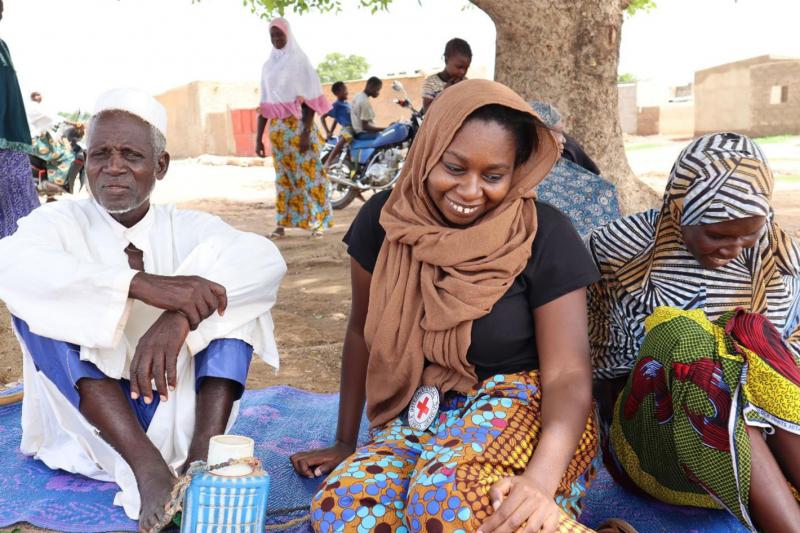
© Zalissa Sanfo/ICRC.
Halimatou was born in Niamey and grew up in Niger, France, Côte d'Ivoire and Belgium. Having begun her career as a communications adviser at Médecins Sans Frontières and the Alliance for International Medical Action, she joined the International Committee of the Red Cross in 2019 as a public relations officer and spokesperson for French-speaking Africa. For nearly fifteen years, she has recorded the life stories of families affected by conflict, natural disasters and epidemics in Africa. During her assignments, Halimatou has met displaced people and refugees, but also humanitarian workers, whose lives see-saw between hope and doubt.
On her commitment to humanitarian work:
There was never any doubt that I would work in the humanitarian sector. I feel that I have always been involved in this field. My parents fled to Europe in the 1980s. Living in exile made us obsessed with remaining connected to our roots. Even as a 10-year old, I regularly watched TV news programmes and read the international papers. My parents spent their lives collecting stories and articles about Niger and other West African countries. These constituted my first press reviews and shaped my interest in journalism and international relations very early on.
My mother was a volunteer for the Red Cross in Belgium. I often accompanied her on her humanitarian assignments: I remember the “multicultural meals” that brought together migrants from many countries, and the debates on citizenship and racism. For many of us, these precious moments broke through our social isolation. I learned about solidarity and what it means to belong to a community. This is certainly why I understand the significance of humanitarian work and why I feel close to the victims of the conflict today.
On her experience of working on the ground with people affected by conflict:
Unfortunately, it is often civilians who pay the heaviest price. I meet many women and children on my travels. Whether in camps for displaced persons, in hospitals or in urban areas, these women's lives have been touched by violence and suffering, but also by hope. When I write about them, I try to convey their emotions, to reflect the fragile nature of our societies and to highlight the humanity beyond the horror. The leitmotifs in many of their life stories are patience and resilience.
Kétiné is one of the words in Fulani that is closest to my heart: it means “to listen”. When I talk to people in need, I engage in active listening. When I first started writing down people's stories, it was a very raw experience: I was overwhelmed by the emotions of the people I had met and felt a certain responsibility towards them. Above all, I wanted their stories to raise awareness and I wanted my work to have a social impact.
In 2011, in Mineo, Italy, I collected the stories of migrants who had survived a shipwreck. They had crossed the desert and experienced violence in Libya; they told me about their anguish regarding their uncertain future. One of the migrants, a young Nigerian named Abdoul, called me three years later to tell me that he had left the transit centre and was working in Rome. It was such a joy to hear his voice. Unfortunately, you don't always know what happens to the people that you help.
With time, I have learned to shoulder less of the burden of other people's pain, to appreciate the fleeting glimpses of humanity revealed by a smile at the end of a conversation. This is also what helping people means.
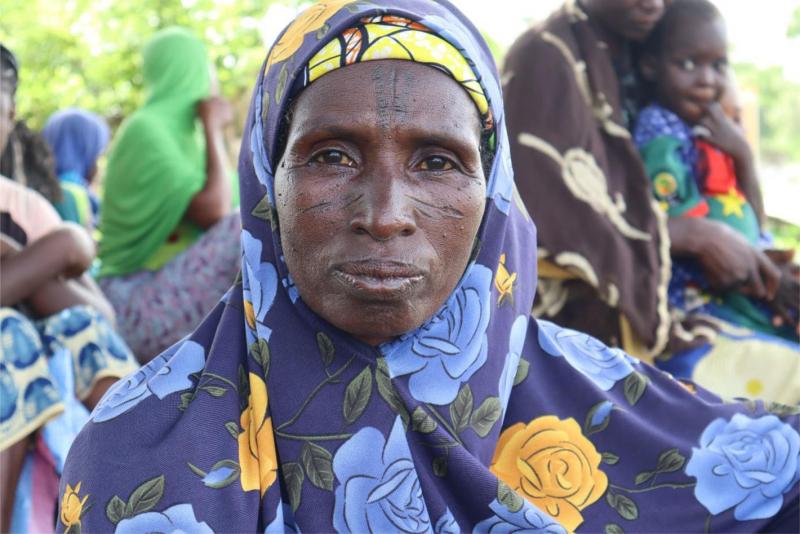
© Halimatou Amadou/ICRC.
On the purpose and scope of her work as a woman humanitarian worker in the Sahel region:
Women's vulnerability often belies their surprising strength. Last summer, in Fada N'Gourma in Burkina Faso, I met Aïssa, a slender, charismatic woman. One day, she took me by the hand and showed me around the site for internally displaced people where she lived with hundreds of others. She was extremely determined: she described to me in detail the water and shelter needs of the community; she did not leave a single person out and knew the stories and needs of every family. Earlier, ensconced in her hut, she had told me how she had fled her village with her family in the middle of the night after her husband had been killed. She is currently living apart from her two children because there is no suitable accommodation available for them.
There are so many stories; in one way or another, they all relate to my own. The people we help are often surprised that I understand their language and that I, a woman, work in this field. It reassures them to talk to someone who looks like them; people sometimes tell me that they are proud and happy that I am no longer “lost”, because I – like them – have experienced life in exile.
- 1Vanessa Moungar and Yero Baldeh, “A Whole of Society Approach: Women Are Key to Building Resilient Communities beyond COVID-19”, African Development Bank Group, 12 November 2020, available at: https://www.afdb.org/en/news-and-events/whole-society-approach-women-ar….
- 2The women’s stories were collected and transcribed by Halimatou Amadou, Zalissa Sanfo, Mohamed Cissé, Abdoul Rahamane Yaou Diaouga and Mahamadou Hama between 2020 and 2022, and edited by Nour Assaf. Some names have been changed.
- 3In Burkina Faso.
- 4Equivalent to approximately €7.60 as of May 2022.
- 5Equivalent to approximately €103 as of May 2022.
- 6Statement recorded in March 2021.
- 7The attack took place in March 2019 in Ogossagou, Mali.
- 8Statement recorder in February 2020. See also the video available at: https://t.co/Tjg9wB9xUo.
- 9Kadidjatou's full story, “Niger: Kadidjatou, surprendre malrgré le handicap”, International Committee of the Red Cross, September 2020, is available at: www.icrc.org/fr/document/niger-kadidjatou-surprendre-malgre-le-handicap.
